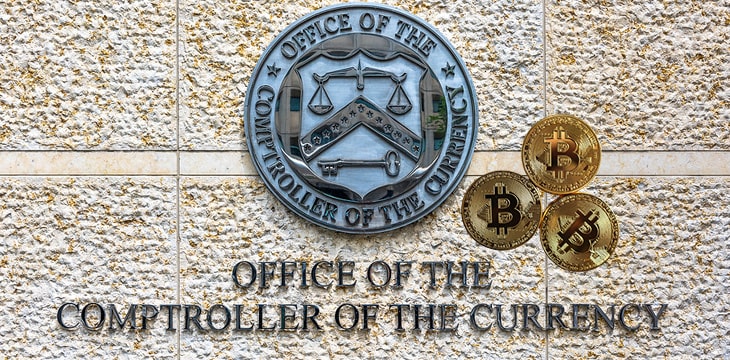|
Getting your Trinity Audio player ready...
|
In another move that could signal changes for digital asset regulation, Brian Brooks is reportedly stepping down from his position heading the U.S. Office of the Comptroller of the Currency (OCC).
Prior to his appointment as Acting Comptroller in May 2020, Brooks worked as general counsel at Coinbase (NASDAQ: COIN). He had served as Deputy Comptroller since March 2020, but moved into the top position after the resignation of Joseph Otting.
OCC spokesperson Bryan Hubbard originally posted on Twitter that he wasn’t able to announce anything official, but a day later announced Blake Paulson would be stepping into the Acting Comptroller role.
Per the story by @vtg2 for all those who are asking, "OCC spokesperson Bryan Hubbard [that's me] would not confirm that Brooks is leaving."
— Bryan Hubbard (@BryanKHubbard) January 12, 2021
Congratulations to Blake Paulson, who will become Acting Comptroller of the Currency at @USOCC at COB on January 14 when @BrianBrooksOCC steps down.
OCC https://t.co/3zXLPCddId via @usocc pic.twitter.com/24LHmTrBiQ
— Bryan Hubbard (@BryanKHubbard) January 13, 2021
Brooks’ appointment to head the OCC in 2020 was welcomed by the digital asset industry, which saw it as an opportunity for greater official acceptance. President Donald Trump had nominated Brooks to serve a full five-year term, but with the recent change of leadership at top levels of the U.S. federal government, there’s an expectation the Biden administration will fill regulators’ roles with its own selections.
The industry’s wishes looked like coming true, if only briefly. Just two days ago, the OCC gave conditional approval to grant a federal charter to Anchorage Digital Bank—formerly the state-chartered Anchorage Trust Co. of South Dakota. Anchorage had sought to provide custodial solutions for digital assets including stablecoins and unspecified others, becoming the first company of its kind to receive such approval.
Brooks had also made other digital asset-friendly moves at the OCC including several recommendations and statements supporting banks partnering with and providing services to blockchain companies—as well as being able to make payments using stablecoins. He favored a national approach to regulation, and had also referred to “decentralized finance” (DeFi) as being akin to self-driving cars, calling companies in the space “self-driving banks.”
In fact, such was his focus on the industry that six Democrat members of Congress (including House Financial Services Committee head Maxine Waters) wrote an open letter of complaint requesting Brooks focus less on blockchain regulation and more on COVID-19 economic relief measures.
Given the controversy over Brooks’ goals, it is perhaps not surprising he saw his time at the OCC as limited after Democrats took the Presidency and House of Representatives in November 2020, then gained control of the Senate as well in January 2021.
It’s also a sign that Democrats’ own policies may either be tougher on the digital asset industry, or that their policy priorities may lie elsewhere.
Either way, there were signs on social media that industry participants and followers were sorry to see Brooks go:
Cash is trash. Crypto is King!
— 0://wilder.frank (@realfrankwilder) January 13, 2021
In a statement announcing his departure, Brooks said: “It has been a great honor to serve the United States as acting Comptroller of the Currency. I am extremely proud of what we have accomplished together through what have been extraordinary times by any measure.”
The Office of the Comptroller of the Currency serves to charter, regulate and supervise national banks, bank-like co-operatives and US branches of foreign banks. In principle, its objective is to keep the banking industry safe and competitive, ensuring fair and equal access to financial services, investigate any misconduct and enforce laws such as AML/CTF (anti-money laundering and financing of terrorism). An agency with a long history, it was originally created by President Abraham Lincoln in 1863 during the U.S. Civil War.
Paulson, Brooks’ successor (at least temporarily) has worked at the OCC in various roles for over 33 years. Whether he will be appointed to continue in that role is not yet known.
See also: U.S. Rep. Darren Soto’s keynote talk at CoinGeek Live, Balancing Innovation & Regulation for Growth of Blockchain Technology

 03-05-2026
03-05-2026 




